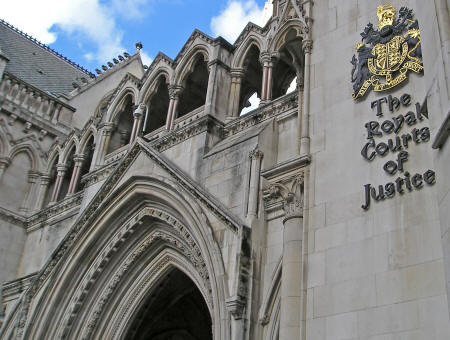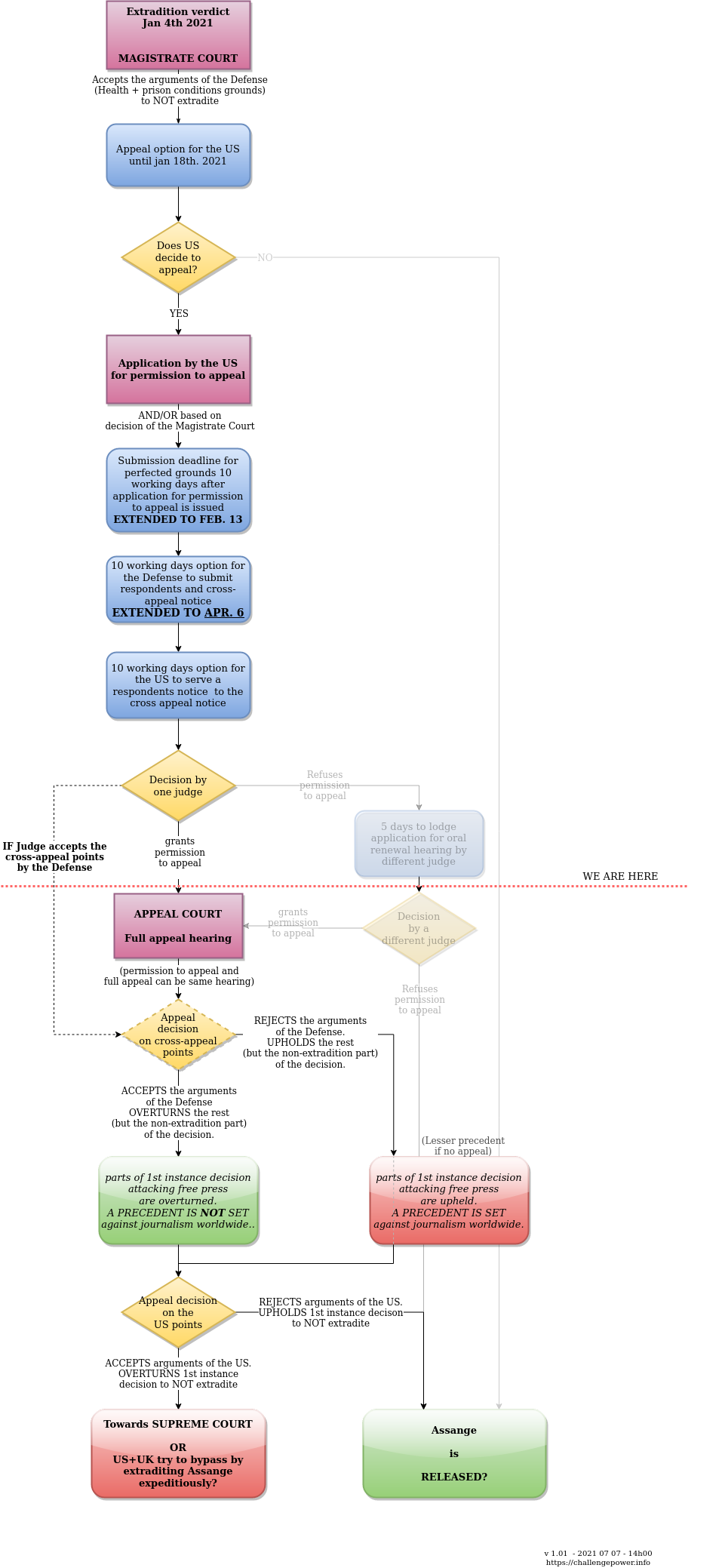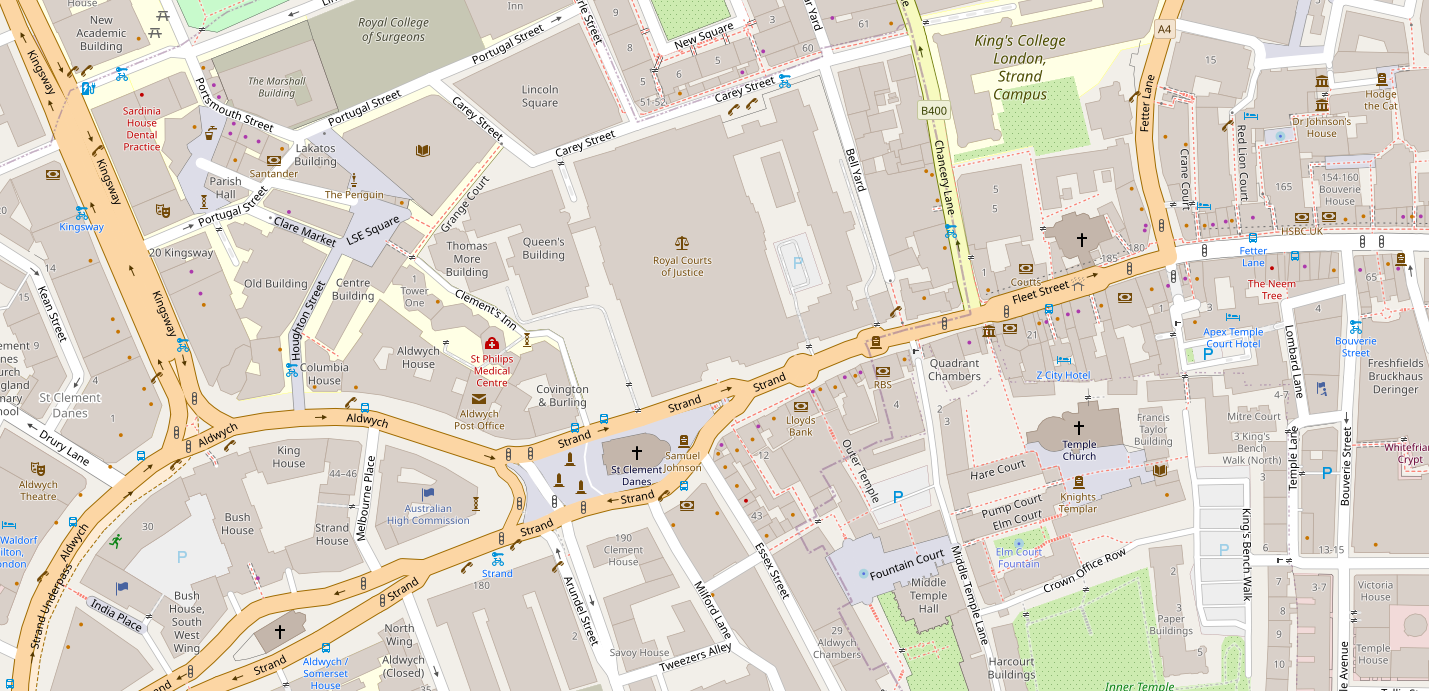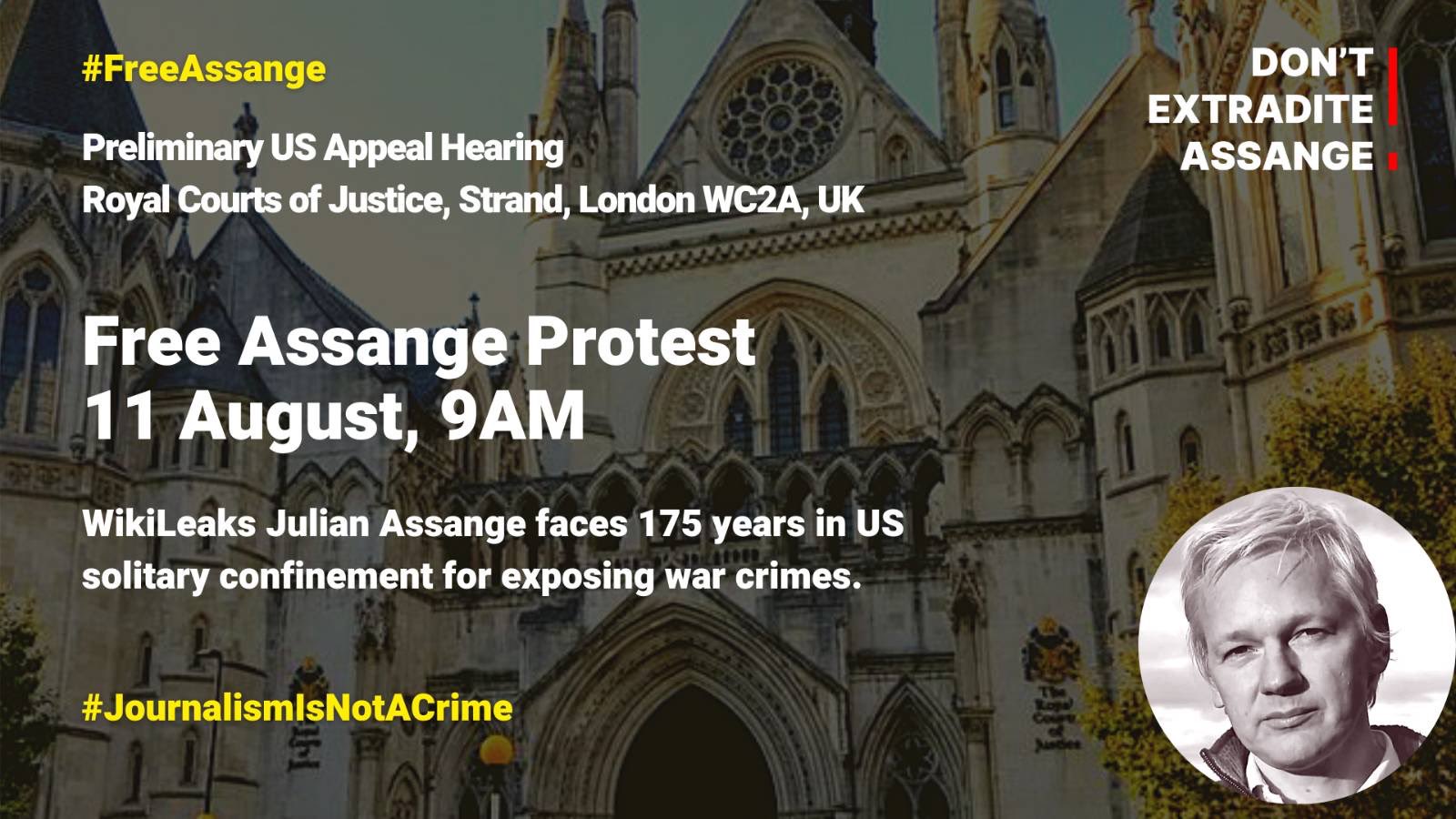USA vs Assange - S02E01 - The Extradition Appeal
 The UK Court of Appeal has granted permission to the USA to appeal Jan.4th 2021 first instance decision to NOT extradite Assange.
The UK Court of Appeal has granted permission to the USA to appeal Jan.4th 2021 first instance decision to NOT extradite Assange.
The USA indeed want to revise the non-extradition decision to further be able to prosecute him in the US where he faces 175 years in prison for revealing war crimes.
In the meantime, and despite a court decision ruling in his favour, Assange is still jailed in the max-security prison of Belmarsh.
What we know
- The USA has decided to appeal UK's first instance decision to NOT extradite Assange
- The UK as granted the USA permission to appeal
- The USA want to oppose the main arguments that lead to Assange's non-extradition: His mental health being critical / the conditions in US prisons that will not prevent him from commiting suicide, as evidenced by an email from the UK Crown Prosecution Service answering questions from the New York Times.
- The Defense may want to oppose the other arguments (“cross-appeal”) of the first instance decision: denying the journalistic, political, and general interest character in Assange's actions; claiming that harm was caused by WikiLeaks releases; etc.
- USA's prosecution is still going on despite a change to Bidens' administration. Gordon Kromberg still seems to be in charge at the DoJ.
- The procedure goes on, with upcoming decisions on whether or not the Defense will be granted its cross-appeal points, and about the schedule of the upcoming hearing.
- A preliminary hearing will be held on August 11th 2021.
- The hearing will be held in the Royal Court of Justice, The Strand, London.
What we don't know
- When will the full appeal hearing be scheduled?
- Will the Defence be granted the permission to appeal on other grounds (“cross-appeal”) than the ones the USA are appealing on?
- Will the USA finally, once and for all, drop the case, which would be the only proper issue to the case.
- If appeal is won by Assange, what comes next? Will he be free? Where could he go?
Preliminary Appeal hearing - August 11th
According to the Courage Foundation, a “preliminary hearing” for the appeal has been scheduled to August 11th.
This is probably gonna be a “technical hearing” where the date of the full hearing will be set, also maybe where the Defence will know if they are granted a permission to appeal on other grounds?
For more about the procedure, check the flowchart detailing the next steps.
The US has been granted limited permission to appeal January decision - what does "limited" in this case mean?
The source of this text is Defend WikiLeaks.
A Court has notified the parties involved in Julian Assange’s extradition case that the United States government’s appeal will be listed for a hearing.
The decision by the High Court simply gives permission for the US government to attempt to challenge the ruling, but it does not reflect the merits of the US arguments.
Permission has been granted on a limited basis, allowing only narrow, technical grounds to form the basis of the appeal. Crucially, the High Court did not allow the United States to appeal any of the factual findings concerning Assange’s condition.
Assange’s extradition was blocked in January on the grounds that it would be “oppressive”, citing the circumstances of the extradition, as well as his clinical history and Autism Spectrum disorder diagnosis, which, combined, would drive him to suicide. The High Court affirmed Judge Vanessa Baraitser’s conclusions concerning his clinical condition, as well as the independent expert evidence on which she relied.
Assange faces a sentence of up to 175 years in prison if extradited.
The appeal was lodged by the Trump Administration, just two days before President Biden took office, but revelations reported last weekend dealt a new blow to the credibility of the Department of Justice case.
Icelandic investigative journalists revealed that the DoJ’s lead witness, an Icelandic man convicted of sex crimes against minors, fraud and embezzlement, who is also a diagnosed sociopath, now admits that he fabricated allegations against Assange in exchange for immunity from US prosecutors. Those discredited allegations form the basis of the Second Superseding indictment against Assange and were even cited in the extradition judgment delivered on January 4th.
Julian Assange’s fiancee, Stella Moris, said:
“Six months ago, Judge Vanessa Baraitser blocked the extradition of my partner, Julian Assange, because consigning him to the US prison system would have amounted to signing his death warrant. That should have been the end of it.
“The new revelations concerning the DoJ’s lead witness, Sigurdur Ingi Thordarson, confirm what we all knew: that the case against Julian has been built on lies. The case is rotten to the core, and nothing that the US government can say about his future treatment is worth the paper it is written on. This is a country whose agents plotted to kill Julian on British soil; who harried his solicitors and stole legal documents; who even targeted our six-month-old baby.
This entirely baseless, abusive, anti-First Amendment case was driven by the previous administration for nefarious reasons. The administration instrumentalised the law to pursue the political objective of disappearing Julian as a deterrent to journalists in the United States and elsewhere.
“I am appealing directly to the Biden government to do the right thing, even at this late stage. This case should not be dragged out for a moment longer. End this prosecution, protect free speech and let Julian come home to his family.
“The current administration admits that the Trump Department of Justice lacked independence. It seems inconceivable that President Biden would want to continue with this case – because Julian’s freedom is coupled to all our freedoms and no democratic society can ever make journalism a crime.
“If the Biden Administration does not end this now, the case will limp through the courts while Julian remains in prison indefinitely: unconvicted, suffering and isolated, while our young children are denied their father. Julian spent his 50th birthday on the 3rd of July behind bars in Belmarsh prison, where he has been on remand since April 2019. He is not a criminal. He is a journalist and a publisher, and he is being punished for doing his job.
“This case shows nothing but contempt for the First Amendment. Repressive regimes welcome the Biden administration’s prosecution of Julian because it signals that imprisoning the press and silencing political dissent is practised and endorsed by the United States. Bringing this shameful prosecution demeans the values that the United States says it stands for. It reduces trust in both the US and the UK legal systems.
“Julian’s prosecution is vigorously opposed by The New York Times and the Washington Post, as well as the National Union of Journalists, Amnesty International, Reporters Without Borders and virtually every press freedom and human rights organisation in the West, together with parliamentarians from around the world”.
Lawmakers in the United Kingdom, Germany, Italy and Australia have renewed their calls for the Biden Administration to abandon the prosecution as international political pressure grows. A group of German MPs have written to Chancellor Angela Merkel, asking her to raise the issue with President Biden during her forthcoming trip to Washington.
More Context about the Appeal by Stella Morris
from https://www.crowdjustice.com/case/assangeappeal/
It is seven months since Julian’s extradition was blocked by Judge Vanessa Baraitser, yet he has remained in prison, suffering and isolated, despite having committed no crime.
It took the court six months to decide whether to grant the US government permission to appeal. Permission has been granted on a limited basis; that is to say, two out of the five grounds that the US applied to appeal on were rejected by the High Court judge who reviewed the application.
The next court date will be on August 11th at the Royal Courts of Justice in central London. Julian is expected to attend in person.
Whatever spin the US might try to put on the appeal, it is important to remember that it has been granted on limited grounds. The case was reviewed by Mr. Justice Jonathan Swift, one of the most senior High Court judges in charge of the Administrative Court, and he found that Judge Baraitser had rightly relied on expert evidence that Julian’s clinical condition meant that he is at a high risk of death if the UK court orders his extradition, as well as supporting her assessment on the integrity of the expert witnesses.
The United States government is not accepting the High Court’s ruling, which allows only limited grounds of appeal and this is what next Tuesday’s hearing will be about: the US is asking different High Court judges to grant permission for the two grounds that it lost on, in an attempt to appeal on all five grounds. During the hearing the US government is set to attack the professional integrity of Professor Michael Kopelman, an eminent expert in his field, in an effort to rule his important evidence regarding Julian’s mental health inadmissible.
Any losing party, the US in this case, is allowed to attempt to have different judges review the grounds that they have lost on. But the US government’s attack on Dr. Kopelman is particularly vexatious. The US government will try to re-run arguments that have already been settled by two different judges. It is the latest move by the US government to try to game the British legal system. The US government’s handling of the case exposes the underlying nature of the prosecution against Julian: subverting the rules so that Julian’s ability to defend himself is obstructed and undermined while he remains in prison for years and years, unconvicted, and held on spurious charges. The “process” is the punishment.
However much the prosecution plays to the gallery on August 11th in its efforts to attack the reputation of one of the most well-respected neuropsychiatrists in Britain, the real substance of the appeal will take place when the main appeal hearing will be heard in full later this year. But the scope of that hearing, three or five grounds, will be determined on the 11th of August.
After having lost the extradition case in January, the US government issued what is referred to as “undertakings” or “assurances”, though both terms are misnomers, as regards to its highest-security federal prison in the US, Supermax ADX Florence, and so-called Special Administrative Measures (SAMs), as well as prisoner transfer arrangements to Australia to serve the final part of his (potential 175-year) sentence.
The first thing to point out here is that any assurances short of dropping the case entirely are worthless. Julian is being punished for doing his job. He published true information that the public had the right to know and which revealed serious wrongdoing on the part of states and their agents.
Some people have wrongly suggested that the US government’s so-called “assurances” are significant concessions in relation to Julian’s case – for anyone who looks at their wording it is clear that they are no such thing, as Amnesty International has repeatedly exposed.
Here are a few reasons why:
- According to its own filing, the caveats to these “assurances” render them meaningless – the US government can still impose the conditions that Judge Baraitser concluded would kill him, if it decides that Julian “do(es) something subsequent to the offering of these assurances that meets the tests for the imposition of SAMs or designation to ADX”. In other words, it imposes no obligations whatsoever on US authorities to rule out SAMs and ADX, and asserts the US government’s prerogative to impose ADX/SAMs conditions once Julian is in US custody
- According to the US government’s own filing, the “assurances” can be overridden by US intelligence agencies on national security grounds (28 C.F.R. § 501.2 or § 501.3), with no transparency at all. Julian has famously exposed how these powerful US agencies engage in criminality and wrongdoing, including torture, in many WikiLeaks publications over the years. News reports have listed US agencies as having carried out illicit activities targeting Julian and our family. It is fanciful to suggest that these agencies would not use their statutory powers to bury Julian alive and in so doing cause his death once he was in US custody
- More than 80,000 prisoners a day are held in solitary confinement in the United States outside the Supermax system and the SAMs system according to the US Bureau of Justice Statistics. Even if the US did not apply SAMs or ADX, Julian would be certain to fall into the category of prisoners held in solitary confinement, conditions that the medical experts in this case have found would drive him to suicide (only some 45 people are held in SAMs and approximately 500 in ADX Florence).
- The pledge that he could finish his sentence in Australia is not a concession, it is existing, agreed protocol between the US and Australia – but it would only be accessible to Julian when all appeals have been exhausted, which could take more than a decade because the case would inevitably go all the way to the Supreme Court
- The history of US conduct of the case – bugging the Ecuadorian Embassy, spying on Julian and our family, targeting Julian’s lawyers and violating legal privilege recording his lawyers’ meetings with him, harvesting DNA from our baby, to name but a few of the known aspects, shows that the US government cannot and should not be trusted to deliver on any “undertakings” they make in relation to Julian. The only criminal activity that has taken place in this case has been committed by the prosecuting state against Julian, his colleagues, friends and family.
Amnesty International says: “Such latitude to alter the terms of the core assurances after Assange’s transfer to the US renders them irrelevant from the start since he would remain at risk of ill-treatment in US detention at the point of transfer and afterward”. Julia Hall, their expert on Counter-Terrorism, Criminal Justice and Human Rights, says: “These are not assurances at all…these are inherently unreliable, it promises to do something and then reserves the right to break the promise”. (https://www.ilfattoquotidiano.it/in-edicola/articoli/2021/07/24/julia-hall-amnesty-international-expert-on-national-security-assange-should-be-released/6272346/)
The so-called “assurances” are not the issue before the court on August 11th. There have however been numerous fleeting reports about the “undertakings” that have completely misconstrued their scope and nature, wrongly suggesting they remove the factors that the Magistrate took into consideration to rule against extradition on January 4th.
What the US is proposing is a formula to keep Julian in prison effectively for the rest of his life despite mounting international pressure for his release and a widespread acceptance that the US case is built on lies.
It is ironic that the US appeal was granted days after investigative journalists in Iceland revealed that the Department of Justice’s lead witness Thordarson has admitted that allegations in the indictment against Julian that are based on his testimony are fabricated, and that he became a DoJ witness in exchange for immunity from US prosecutors (https://stundin.is/grein/13627/). Those discredited allegations have grossly misled the UK courts and are repeatedly cited in the judgment delivered on January 4th.
Julian spent his 50th birthday behind bars in Belmarsh prison, where he has been on remand for two years. He is not a criminal. He is a journalist and a publisher, and he is being punished for doing his job. Julian’s freedom is coupled to all our freedoms - no democratic society can ever make journalism a crime.
Although there is growing pressure from legislators, human rights organisations and press freedom groups from around the world for the US to abandon this baseless, politically motivated prosecution, unfortunately we must prepare to fight it in court again.


